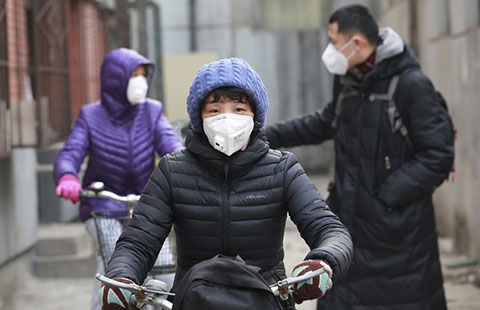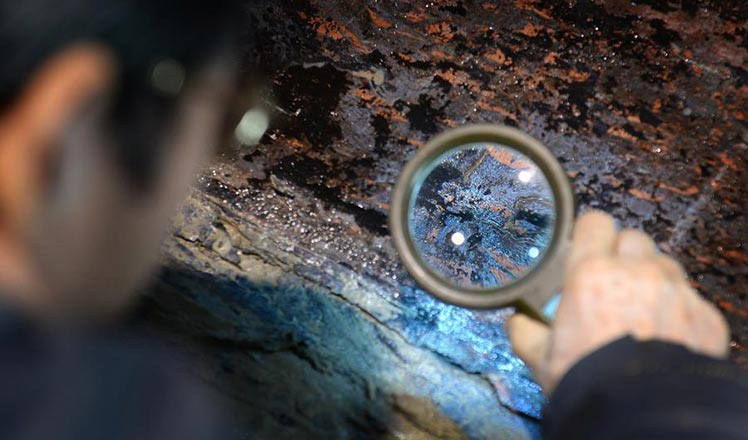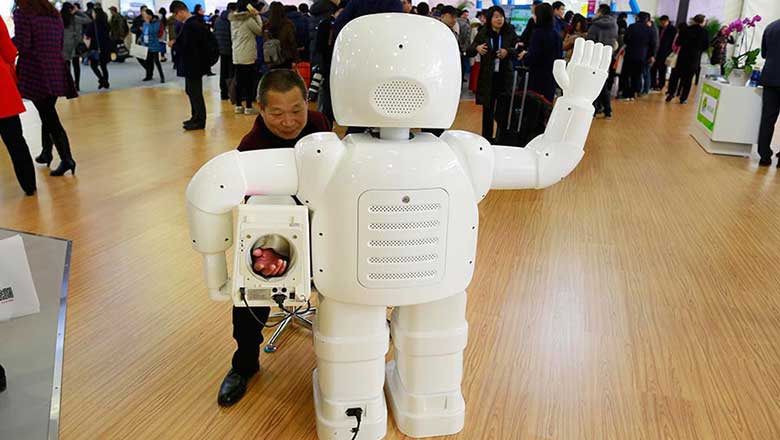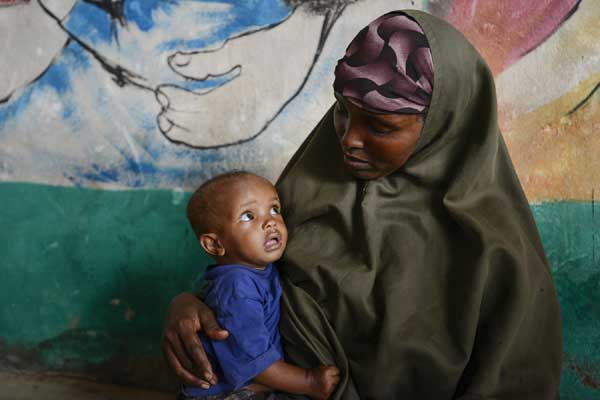Five years since the famine, Somali children still stalked by menace of hunger
Updated: 2015-12-22 17:00
By Kun Li(UNICEF)
|
||||||||
"My husband is a casual laborer; he goes around collecting firewood. He is not working at the moment," said Maqami, 19, one of the mothers I met at the center. In the arms was her 11-month-old baby Ridwan, who had suffered for some time from malnutrition and also a high fever and diarrhoea, and was referred here to continue his treatment after being discharged from the hospital. Ridwan was not feeling well that day. He let out weak cries every so often, like little pleas for attention from his young mother.
"The father of my children became disabled a couple of years ago, so he cannot work," said another mother, Barlin Ali, 34, who came with one of her nine children. "He stays at home all day."
Unemployment seems to be a big problem for these families. Yet they are still not the worst off. Even more vulnerable and disenfranchised are the internally displaced persons (IDPs). In the two IDP camps I visited, almost no men had jobs. It is often the women who support the household by washing clothes for better-off families in the town, or looking for firewood to sell outside the camp - exposing them to the danger of sexual violence.
"Most of us come from the countryside, so we are not used to this kind of camp life," said Hawa Abukar Waladi, a Community Health Worker (CHW) in Salamey Idale IDP camp. Everywhere you look there are rag- and sheet-covered huts sprawling in every direction. Piles of waste are scattered across the dusty landscape. Children walk around, with no shoes, and many without pants.
"Sanitation and hygiene is a big problem here. Many children suffer from malnutrition, diarrhoea, and many pregnant mothers have anaemia," said Hawa.
- Islamist al Shabaab attack Somali hotel, kill at least 11
- Somali military training base attacked with car bomb
- Somali FM mourns Chinese security officer killed in hotel blast
- Somali official says friendship between two countries intact
- Sino-Somali ties unaffected by bombing
- Beijing condemns Somali attack, mourns deaths

 Whatever the shape or size of a tree, Merry Christmas!
Whatever the shape or size of a tree, Merry Christmas!
 The world in photos: Dec 14 - 20
The world in photos: Dec 14 - 20
 First American woman who works as captain for a Chinese airline
First American woman who works as captain for a Chinese airline
 Life of a family amid Beijing's red alert smog
Life of a family amid Beijing's red alert smog
 External coffin lid of 2,000-year-old Chinese tomb opened
External coffin lid of 2,000-year-old Chinese tomb opened
 First Miss Iraq named in decades
First Miss Iraq named in decades
 Iraq holds its first beauty contest in 40 years
Iraq holds its first beauty contest in 40 years
 Highlights at the Light of the Internet Expo
Highlights at the Light of the Internet Expo
Most Viewed
Editor's Picks

|

|

|

|

|

|
Today's Top News
Shooting rampage at US social services agency leaves 14 dead
Chinese bargain hunters are changing the retail game
Chinese president arrives in Turkey for G20 summit
Islamic State claims responsibility for Paris attacks
Obama, Netanyahu at White House seek to mend US-Israel ties
China, not Canada, is top US trade partner
Tu first Chinese to win Nobel Prize in Medicine
Huntsman says Sino-US relationship needs common goals
US Weekly

|

|








